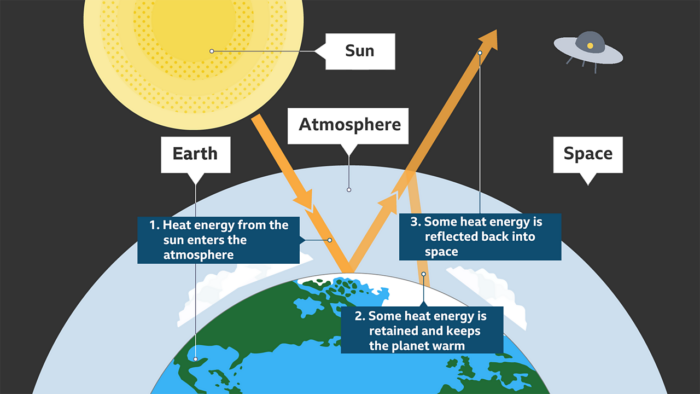You know the usual schematic diagram of the greenhouse effect. Here are a couple for reference: and What’s missing? Humans creating power for ourselves creates heat. It happens if we create it through burning fossil fuels, using nuclear power, and even fusion. Using solar panels absorbs extra heat. I hope you respond that whatever heat we produce is negligible. Today it is, but since industry and our current lifestyles require[…] Keep reading →
Characterizing my sustainability journey in the language of presidents
on August 29, 2024 in Freedom, ModelsSince I’ve been studying so much American history and seeing American presidents as role models, I couldn’t help stumbling on a characterization of my development. Before I acted, when I knew the problems with pollution and depletion but contributed to them as much as everyone around me, I was like Thomas Jefferson speaking about freedom while owning slaves. Today I still pollute and deplete, but far less than before. I’m[…] Keep reading →
Who are we in the Star Wars universe?
on August 9, 2024 in Freedom, ModelsWhat role in the Star Wars universe best describes you, your nation, or your culture? I think most people would like to think of themselves as Luke, Leia, or someone in the rebellion against the empire. Or someone outside that conflict, maybe just living on their own. Let’s see. Context: A culture living unsustainably means it will run out of at least one necessary resource. If it can trade for[…] Keep reading →
We living sustainably today, helping others live more sustainably are like Americas founders in 1774 and more.
on August 8, 2024 in Freedom, ModelsDid America’s founders know they’d win in 1774, say, at the time of the Intolerable Acts? Did the other colonists? Did people think independence was possible? Nobody knew. Probably most would bet against their fighting the greatest empire in history. We who work on changing culture to sustainability are like America’s founders in 1774. Obviously I’m not saying exactly. There are many differences, but in that we are taking on[…] Keep reading →
We study Lincoln to see who we could be, but should also study Calhoun to see who we are
on August 7, 2024 in Education, Leadership, ModelsI’ve been reading podcast guest Manisha Sinha’s book The Counterrevolution of Slavery, which recounts how slaveholders spoke and acted to justify and advance their institution of slavery. I know to expect it from having seen it before in podcast guest James Oakes’s The Ruling Race and Jenkins’ Proslavery Thought in the Old South, but I’m still shocked at how relevant their thinking is today. They treat a different institution, but[…] Keep reading →
I started in sustainability trying to restore nature. Now I see we have to restore humanity.
on July 20, 2024 in Models, RelationshipsWhen I started working on sustainability instead of hoping someone else would fix our problem, I saw my goal as restoring nature, also conserving and protecting it. Learning that our environmental problems result from our behavior, which results from our culture, has taught me that we have to work on ourselves. I see how much our culture promotes addiction, pollution, depletion, and plunder. I see that we are abandoning or[…] Keep reading →
How I don’t need willpower by learning to feel disgust for what once tempted me. You can too.
on June 28, 2024 in Addiction, Leadership, Models, TipsMaybe you’ve heard me share how from when I had my own kitchen, I always had ice cream in my freezer and pretzels and Doritos in my cupboard. I struggled to pace my consuming them, but nearly always ate more than I meant to, but kept buying more. Now I say there isn’t enough money in the world for me to eat that stuff. I also talk about my relationship[…] Keep reading →
How what I’m doing feels, subway version
on June 24, 2024 in Addiction, Fitness, ModelsSometimes I feel like I’m responding to someone who fell on the subway tracks. No one else acts. I jump down onto the tracks to help the person to safety, but the person is morbidly obese and struggles just to lift themselves from the ground. They’ve decided to stop trying. “It’s too hard. It’s not worth it.” They resign themselves to the train hitting them. “As long as I can’t[…] Keep reading →
Magnitude of suffering and death then and now
on June 15, 2024 in Leadership, Models, VisualizationI wrote recently in When changing fast is easier than slow about the growth in number of slaves in the United States based on a peer-reviewed paper From ‘20 and odd’ to 10 million: The growth of the slave population in the United States, by J. David Hacker in the journal Slavery & Abolition. That paper also reported the cumulative number of slaves in the United States. Before looking at[…] Keep reading →








